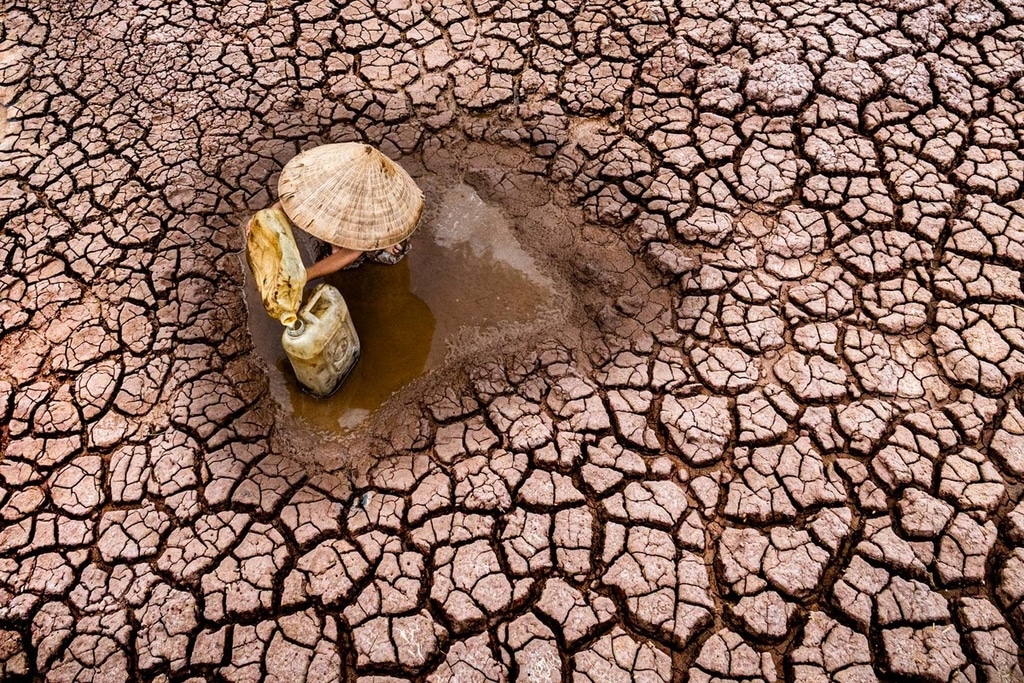The latest IPCC climate report warns climate-related risks at lower levels of warming are greater than previously thought, and there is a small but rapidly closing window to adapt to climate change.
—
Climate change has already caused “adverse widespread”, in some cases, “irreversible” impacts to both nature and humanity, and the clock is ticking for the world to adapt to it, according to the latest report released by the Intergovernmental Panel on Climate Change (IPCC).
The second instalment of the IPCC’s three-part Sixth Assessment Report, called Climate Change 2022: Impacts, Adaptation and Vulnerability, was released on February 28. The report incorporates the most up-to-date information on how climate change is affecting “ecosystems, biodiversity, and human communities at global and regional levels”. The report, which was put together by 270 scientists from 67 countries, also reviews the limits of the natural world and analyses if societies are doing enough to adapt to climate change.
The world’s top climate scientists found that human-induced climate change, including more frequent and extreme weather events such as wildfire and droughts, has caused human mortality rates to rise while up to 3.6 million people are highly vulnerable to the effects of it.
The climate crisis is exposing millions of people to food insecurity and malnutrition, along with rising numbers of climate migration and growing losses in climate-sensitive sectors such as agriculture and fishing. Climate-related health problems continue to proliferate across the world, but for the first time in an IPCC report, experts have highlighted how climate change is affecting people’s mental health, too – now often referred to as climate anxiety.
All the evidence points to how there are limits to how much natural and human systems can adapt to a rapidly warming world, as both are being “pushed beyond their ability to adapt”.
The latest and comprehensive findings are an “atlas of human suffering and a damning indictment of failed climate leadership,” UN secretary-general António Guterres said during a press conference. “I have seen many scientific reports in my time, but nothing like this.”
You might also like: 11 Interesting Facts About Climate Change
Immediate short-term climate action to cap global warming under 1.5C would significantly reduce the projected impacts and losses, but will not entirely eliminate them all. In fact, the report found that the effects of warming are projected to be more severe at lower temperature increases than the previous 2014 IPCC adaptation assessment had concluded.
Despite the commitments nearly 200 countries made at the COP26 climate summit last November, which is to keep average global temperature rise below 1.5C, the world is still on track for more than 2C increase. The world has already warmed by 1.1C since the Industrial Revolution.
Reducing the projected high climate-related risks will strongly depend on near-term mitigation and adaptation actions. At the moment, climate adaptation is massively uneven amid the impacts of climate change hitting mostly low-income countries the hardest. Between 2010 and 2020, deaths from floods, droughts and storms in West, East and central Africa, South Asia and South America, as well as island states and Arctic regions, were found to be 15 times higher than wealthy nations such the UK and Canada.
Countries have prioritised immediate and near-term climate risk reduction instead of transformational adaptation. And money dedicated towards climate adaptation is vastly “insufficient” according to the authors, with most spending towards climate mitigation.
The report also stresses that the effectiveness of adaptation will decrease with increasing warming, concluding that worldwide climate resilient development action is “more urgent than previously assessed”.
The prior instalment of the IPCC report was a “code red for humanity,” demonstrating how “unequivocal” it is that climate change has disrupted human and natural systems. This time, the authors warn that the world has a “brief and rapidly closing” window to adapt to climate change, and that “any further delay” will cause us to miss the “window of opportunity to secure a liveable and sustainable future for all”.
Featured image by: Chin Leong Teo


















